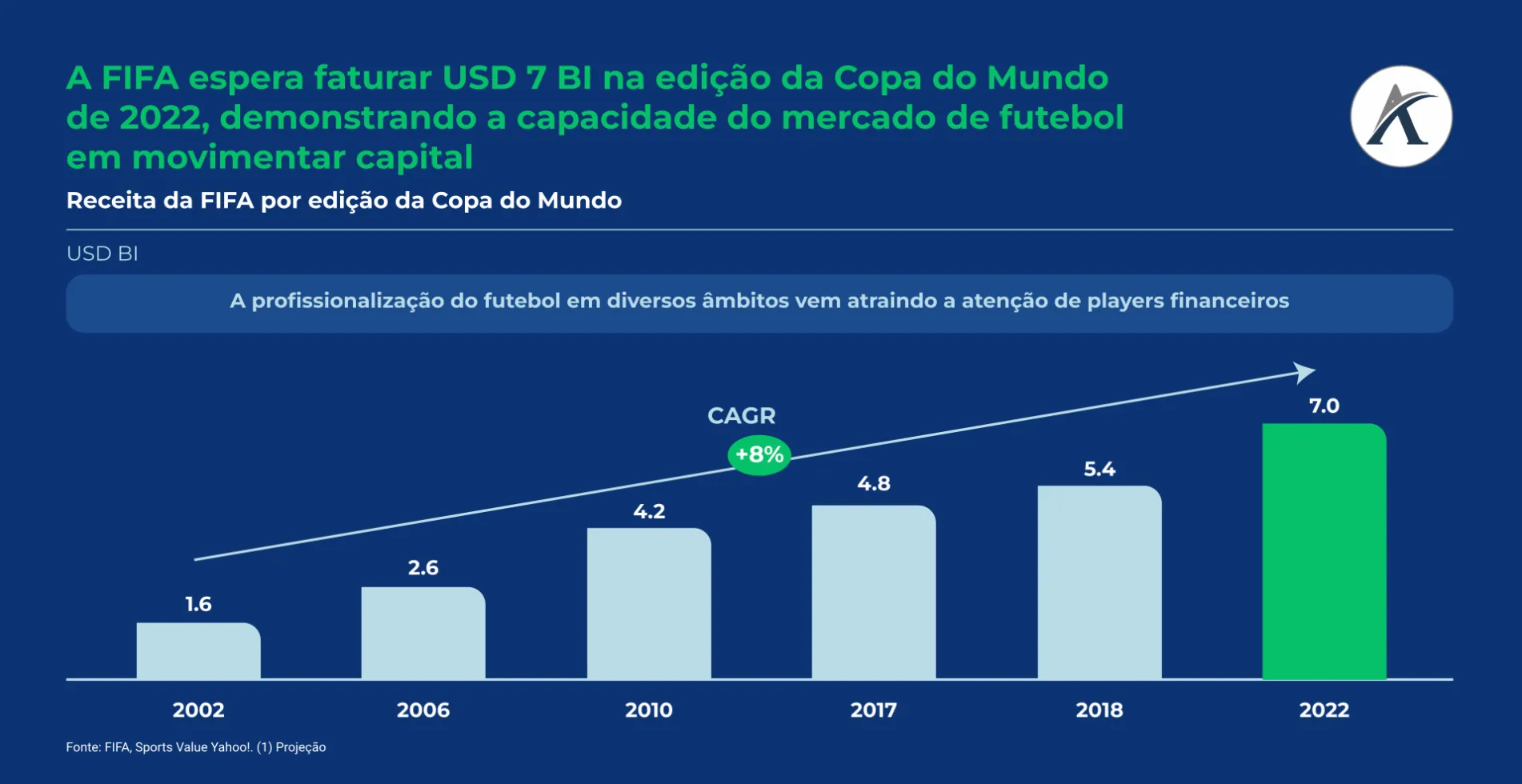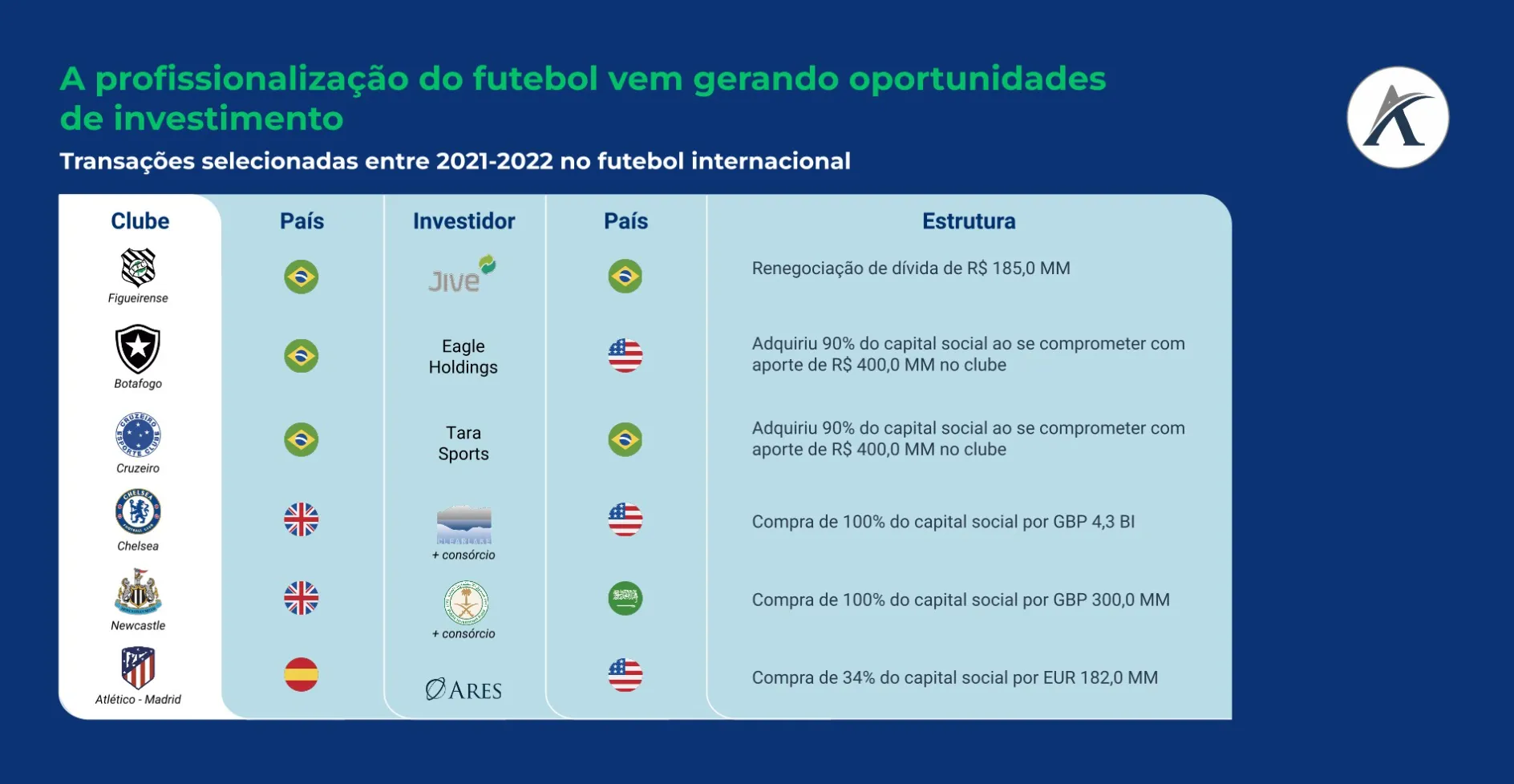The approach of the World Cup, the world's largest sporting event, draws attention to soccer and the market driven by sporting events. The financial volume this event generates is truly astonishing, even though its performances last less than 30 days.
Since the 2002 World Cup in Asia, FIFA's gross revenue has increased consistently every year. For this year's World Cup, revenue is estimated to reach USD 7 billion, with profits approaching USD 3 billion. This growth curve is illustrated in the graph.
This figure isn't even the most surprising. Building Qatar's complete infrastructure is estimated to cost up to USD 300 billion—if we factor in roads, airports, leisure facilities, and hospitality facilities, all of which will be used for the year-end event. This significant amount demonstrates both football's ability to generate good business and the sport's need to professionalize.
This professionalization movement was fueled by advances in team regulations, including the creation of Football Corporations (SAFs), which make this sport viable as a business and demand increasingly complex management of the chain.
Below, we present some examples of transactions that attracted the attention of financial market players and generated over R$30 billion in just two years. The market expects these to be the first transactions to occur, but other teams that are also signaling their professionalization will follow suit.








